Carbohydrates are the preferred energy food source for the human body. All the carbs we eat are converted into the only type of sugar that circulates in the blood, namely glucose. Yet the body is capable of using other sources of energy. For example, the lactate produced as a result of anaerobic metabolism during exercise can travel in the blood from fatigued muscles back to the liver, where it’s converted into glucose in a process called gluconeogenesis. The same fate can also happen to amino acids, as well as glycerol derived from fat. For all these reasons, carbohydrate is not an indispensable nutrient; however, that doesn’t mean that carbs aren’t useful for aiding gains in muscle mass and strength.
For many years the ideal postworkout nutrient combination involved a ratio of 3-to-1 in favor of carbs over protein, a combination that was found to boost training recovery considerably, especially if taken within two hours after a workout. The mechanism involved a heightened release of insulin.
A primary function of insulin is to lower blood glucose. Since maintaining optimal blood glucose is important for maintaining training energy, other hormones, especially the catecholamines, epinephrine and norepinephrine, rise during exercise and blunt the release of insulin.
When the workout ends, however, insulin can rise again, particularly if prodded with a 3-to-1 ratio of carbs to protein. The type of protein suggested for this postworkout surge is a quick-acting variety, such as whey, which rapidly releases its amino acid content and peaks in the blood at about 90 minutes. Some of the amino acids found in whey can directly stimulate insulin release. Since it’s essential amino acids that are required for muscle protein synthesis, that raises the question of whether carbs are really necessary in a postworkout drink.
Studies published years ago found that adding simple carbs, or carbs that are rapidly absorbed, boosts the release of insulin 37 percent more than protein alone. Thus was born the idea of combining a fast-acting protein, such as whey, with a rapidly absorbed source of carb. More recently, though, the practice has come into question based on studies showing that it doesn’t take much insulin release to get all the postworkout benefits. In the presence of a large amount of essential amino acids, insulin helps increase the muscle protein synthesis reaction, mostly by helping decrease muscle breakdown. Less muscle breakdown tips the scales toward a more anabolic profile. While carbs do trigger the greatest release of insulin, it appears that for muscle protein-synthesis-purposes, having sufficient protein is enough to maximize the process following training.
A recent study featured nine men, average age 23, who engaged in two workouts of one-leg extensions followed by a drink containing 25 grams of whey protein or 25 grams of whey protein and 50 grams of maltodextrin, a carbohydrate.1 While the addition of carbs to whey did increase insulin release, both groups showed the same in terms of muscle protein synthesis, indicating that the carbs didn’t add anything in that regard. The added insulin provided by the carbs also didn’t lower muscle protein breakdown any more than did the protein alone. The authors noted that the dose of protein used in the study, 25 grams, was the amount shown in previous studies to maximize protein synthesis. It’s also enough to stimulate enough insulin release—through amino acids—to get all the desired protein synthesis benefits of insulin.
So should we abandon the idea of getting protein with carbs after a workout? From the perspective of muscle protein synthesis alone, the answer would be yes, but you have to consider the bigger picture. There’s more to exercise recovery than just increased muscle protein synthesis. For example, what about the increased cortisol after a workout? Cortisol, an adrenal steroid hormone, is the most catabolic hormone in the body. While postworkout cortisol isn’t dangerous and even boosts exercise recovery by helping to provide energy substrates for the recovery process, it still needs to be controlled. The best nutrient for controlling cortisol is carbohydrate. If the cortisol remains high after training, it may interfere with testosterone release, which would significantly blunt the anabolic effects of exercise.
Anaerobic training, such as typical bodybuilding workouts, is fueled mainly by glycogen, a complex carbohydrate stored in muscle and the liver. While the liver glycogen is used to maintain systemic blood glucose, the glycogen stored in muscle is used exclusively by the muscle in which it’s stored. A single resistance workout can lower muscle glycogen concentrations by 24 to 40 percent. One study found that doing only three sets of curls resulted in a 60 percent drop in glycogen stored in the biceps.
While you can train with other sources of fuel, such as lactate and ketones, none is as effective at helping to increase training intensity as carbohydrate. One study found that people who trained hard while following an Atkins-style low-carb diet had a 56 percent drop in training intensity. Carbs are the only nutrient that effectively replenishes depleted muscle glycogen stores. Taking in carbs and protein after a workout boosts muscle glycogen 2.2-fold over the other nutrient alone. The protein-and-carb combo also lowers free-radical production by 69 percent, boosts insulin release by 70 percent and reduces muscle damage by 36 percent.
You want to make sure you get sufficient carbs within two hours after training, when the enzymes that synthesize glycogen are primed because the existing reserves are depleted. The increased insulin release fostered by simple carb intake also prods this enzyme into increased activity.
Even staunch advocates of low-carb dieting traditionally recommended having off days, in which you increased your intake of carbs—Vince Gironda for one. Vince often said that you need to take in extra carbs at least twice a week while on a low-carb diet in order to replenish depleted glycogen. He felt that without sufficient glycogen in muscles, you simply couldn’t train hard enough.
Others suggest including carb days because of the increased insulin effect. According to that school of thought, the added insulin would provide anabolic and anticatabolic effects that would likely prevent excessive muscle loss during a diet and also control cortisol, since insulin opposes the catabolic effects of cortisol in muscle.
An interesting study published a few years ago found still another reason to include carbs in your postworkout nutrient drink: Carbs are required for the muscle to produce a localized version of insulinlike growth factor 1. IGF-1 is produced in the liver as a result of growth hormone release, but that form has little or no anabolic effects on muscle. The picture changes for the local IGF-1 produced directly in muscle after intense exercise. That form is a primary regulator of muscle and strength increases, which it does by stimulating muscle stem cells called satellite cells that are absolutely essential for muscle repair and growth. It turns out that without carbs, the muscle won’t produce IGF-1 after training. The implication is that the muscle won’t fully recover without sufficient carb intake to not only synthesize glycogen but also promote local IGF-1 release in the trained muscle.
So how many carbs do you need? For purposes of immediate muscle recovery following training, the usual ratio of 3-to-1, carbs to protein, is about right. For overall carb intake the consensus of studies related to weight training is that it depends on several factors, including frequency of training and training volume. The longer your workouts, the more critical carbs become. For workouts lasting an hour or less, the carbs aren’t as vital.
Those who train more than once a day can also benefit from getting more carbs, especially between. An important fact to keep in mind is that any carbs you take in within two hours of training are used exclusively for replenishment of depleted glycogen stores. Basically any carbs you take in during that critical window cannot be converted into bodyfat, nor will they in any way hinder fat-loss efforts. In fact, one of the favored methods of bodybuilders looking to lose fat is to use a strategic style of carb intake: getting carbs prior to training and immediately after training and then following a low-carb diet the rest of the time. That maximizes energy and recovery without hindering fat loss. The general recommendation for hard-training bodybuilders is four to seven grams of carbs per kilogram (2.2 pounds) of bodyweight per day.
Editor’s note: Have you been ripped off by supplement makers whose products don’t work as advertised? Want to know the truth about them? Check out Natural Anabolics, available at JerryBrainum.com.
1 Staples, A.W., et al. (2011). Carbohydrate does not augment exercise-induced protein accretion versus protein alone. Med Sci Sports Exer. 43:1154-61.











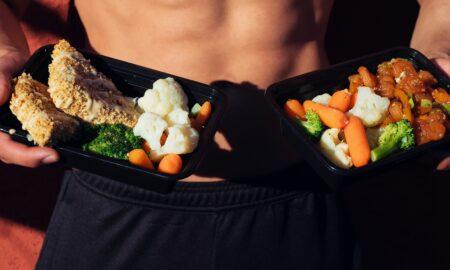
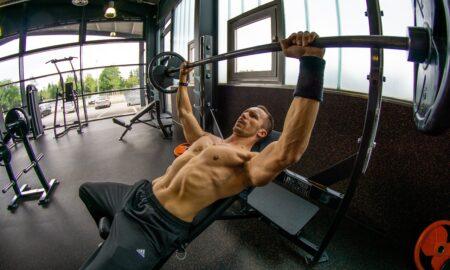
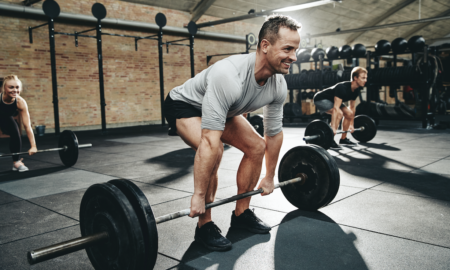


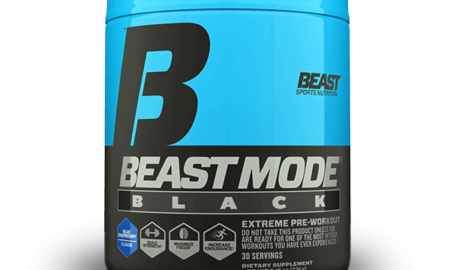
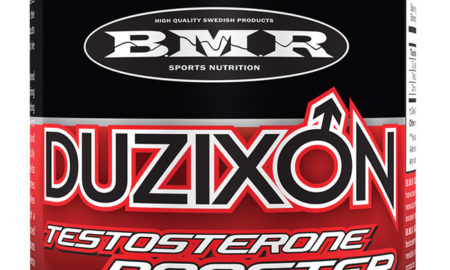
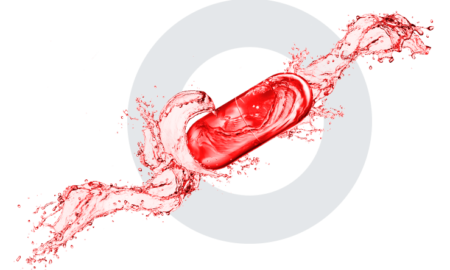

You must be logged in to post a comment Login